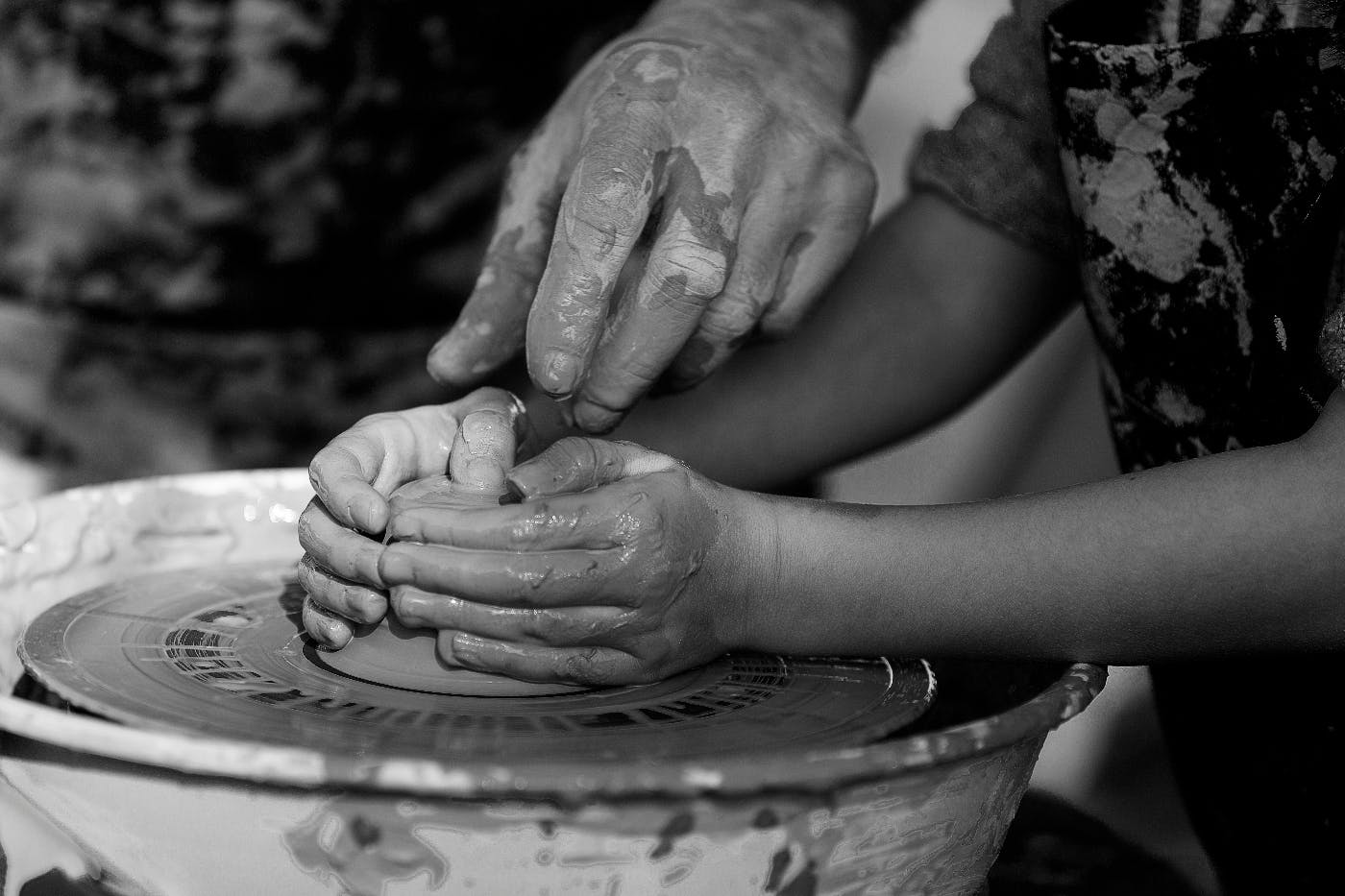
Awe. Not the quick, feel-good response to a cute puppy, a baby's giggle, or two people sharing a moment of love. This is about the feeling of awe that goes deeper—the kind that makes you feel small and yet intensely alive in the presence of something vast, mysterious, and beautiful.
Awe. Not the quick, feel-good response to a cute puppy, a baby's giggle, or two people sharing a moment of love. This is about the feeling of awe that goes deeper—the kind that makes you feel small and yet intensely alive in the presence of something vast, mysterious, and beautiful. It’s an experience that opens up parts of our minds we rarely use, shakes up our sense of self, and forces us to see the world and ourselves a little differently.
Awe is both a revelation and an invitation. It reminds us that there’s so much out there that we don’t know, that we can’t control and that we are connected to something much bigger than ourselves. This feeling, as research has started to confirm, is not only a powerful experience in the moment—it can also have long-term benefits for our health. Studies show that awe has a measurable impact on our brains and bodies, reducing stress and anxiety, boosting our immune systems, lowering blood pressure, and even enhancing cognitive function.
Yet, in a society that prizes control, certainty, and self-assuredness, experiencing awe takes courage. Awe is a confrontation with the unknown and the uncontrollable. To be awed means we must open ourselves up to something bigger than ourselves, let go of our sense of control, and allow ourselves to be transformed. And this transformation is a good thing.
The Power of Awe to Transform Our Health and Minds
In recent years, scientists have become increasingly interested in the effects of awe on human health. It’s becoming clear that awe isn’t just a fleeting, feel-good experience but something that has lasting benefits on our physical and mental health. Here’s how awe impacts us:
- Reduces Stress and Anxiety
- When we experience awe, our brain’s sense of self—the constant chatter of our personal concerns, anxieties, and preoccupations—quiets down. In those moments, we’re less focused on ourselves and more absorbed by the beauty, grandeur, or mystery of what we’re witnessing. This break from our usual self-absorption reduces stress and anxiety. It’s like taking a breath of fresh air after being in a stuffy room all day. Awe allows us to set down our personal burdens and be part of something beyond ourselves, if only for a moment. And in the long term, these experiences can help our brain find a more balanced perspective on stress.
- Boosts the Immune System
- Studies have shown that awe can trigger the release of neurochemicals, like endorphins and dopamine, that boost our immune system. When we’re in awe, our body responds positively, almost as if it’s grateful for the experience. The feeling of awe, it turns out, actually promotes physical resilience. By reminding us of life’s beauty and mystery, awe helps our bodies fight off illness. It’s as if awe is nature’s reminder to us: that we are alive, part of a larger whole, and that our body deserves care and respect.
- Lowers Blood Pressure
- Awe has a calming effect on the nervous system. When we feel awe, our bodies release oxytocin—the hormone linked to love, trust, and bonding—which helps us feel relaxed and connected. This can lead to lower blood pressure and improved heart function. Awe calms the parts of us constantly scanning for threats or preoccupied with “what’s next.” In these moments, our bodies relax because we’ve allowed ourselves to surrender our usual need for control and self-protection. And by lowering our stress response, we’re giving our hearts and minds a much-needed break.
- Improves Cognitive Function
- Experiences of awe are shown to expand our perspective, pushing us to think outside our usual patterns and see beyond our immediate problems. We’re more creative, open-minded, and willing to explore new ideas when we're in awe. It’s as if awe takes our mind on a journey to places it’s never been before. We’re more connected to our curiosity, sense of wonder, and innate desire to learn and grow. Over time, these experiences can make us better problem-solvers and more innovative thinkers.
- Increases Happiness and Kindness
- We’re happier and more connected to the people around us when we feel awe. Awe reminds us of the beauty of the human experience and fosters a sense of kindness and empathy. Studies show that people who regularly experience awe are often more generous and community-oriented. In a world where we frequently feel disconnected and isolated, awe reminds us that we are all part of something larger and that kindness is a natural response to the beauty of being alive.

The Benefits of Awe in the Workplace: How Feeling Small Can Lead to Big Changes
Awe might not seem like it belongs in the workplace, a place often associated with deadlines, productivity metrics, and structured routines. But experiencing awe—whether through a moment of inspiration, connection, or insight—can have powerful benefits that ripple through every aspect of our professional lives. Cultivating awe at work can enhance our focus, creativity, relationships, and sense of purpose, leading to a more fulfilling and effective work life.
Enhances Creativity and Innovation
Awe opens our minds to new perspectives, which are particularly valuable in work settings that demand creativity and innovation. By broadening our thinking, awe encourages us to see beyond routine approaches and tackle challenges in fresh, unexpected ways. This can be especially helpful for problem-solving and brainstorming sessions, where traditional thinking often falls short. In essence, awe nurtures a flexible, expansive mindset that can drive innovation and lead to breakthrough ideas.
Provides a Mental Reset for Focus
Work often requires sustained focus and attention, but the constant pressure of deadlines and multitasking can lead to mental fatigue. Awe can serve as a mental reset, helping us return to tasks with renewed clarity and energy. A short break to step outside, appreciate art, or even listen to inspiring music can bring moments of awe that allow us to pause and re-center. This brief mental refresh can lead to greater productivity and improved focus when we dive back into our work.
Strengthens Workplace Relationships
Awe has a remarkable way of shifting our perspective from self-focused to other-focused, which can enhance workplace relationships. Experiencing awe in any form—whether through shared team accomplishments or powerful ideas—encourages empathy and understanding among colleagues. This mindset makes us more collaborative, fosters trust, and builds a stronger sense of community within teams. By connecting us to something larger than individual goals, awe helps create a supportive and cohesive work environment.
Reconnects Us with Purpose and Motivation
In a professional setting, awe can reignite our sense of purpose and remind us why we do what we do. When we experience moments that inspire awe, such as seeing the positive impact of our work or feeling part of a meaningful project, it reinforces our commitment to larger goals. This sense of purpose keeps us motivated even when day-to-day tasks feel mundane, helping us stay engaged and passionate about our contributions.
Builds Resilience and Adaptability in a Changing Environment
Adapting to change and staying resilient is crucial in today’s fast-evolving workplaces. Awe encourages us to approach challenges with openness and curiosity rather than fear. This mindset helps us navigate uncertainties and setbacks more gracefully, as awe instills an appreciation for life’s bigger picture. By promoting flexibility and resilience, awe allows us to handle professional challenges with confidence and a positive outlook.
Fosters a Culture of Continuous Learning
Awe naturally inspires curiosity, which fuels a mindset of continuous learning—an essential quality for growth in any profession. When we approach our work with a sense of wonder and a willingness to learn, we become more open to feedback, more motivated to develop new skills, and more committed to personal growth. This perspective enhances individual performance and contributes to a culture where learning and growth are valued.
Simple Ways to Cultivate Awe at Work
Creating opportunities to experience awe at work doesn’t require sweeping changes; it’s often about taking small steps that encourage openness and inspiration. Here are a few ways to bring a sense of awe into the workplace:
- Incorporate Nature: Bringing plants into the workspace or simply taking breaks outside can connect us to nature, a powerful source of awe.
- Celebrate Accomplishments: Acknowledging milestones and achievements as part of a larger mission helps reinforce the sense of purpose behind day-to-day work.
- Engage in Learning Together: Bring a sense of awe into team meetings by sharing new ideas, thought-provoking questions, or insights that inspire curiosity and reflection.
- Seek Inspiration Beyond Work: Encourage colleagues to explore creative or meaningful pursuits outside work, which can fuel a sense of awe and purpose when they return.
By embracing awe in the workplace, we create a culture that values openness, innovation, and connection. These qualities make work, not just a place to earn a living but a place to grow, connect, and make an impact.

Awe and the Courage to Be Small
But here’s the catch: awe doesn’t happen unless we’re willing to let it. To feel awe, we have to drop our guard. We have to be open to being moved, humbled, even unsettled. This can feel risky in a society that values independence, control, and self-assurance. We’re taught to be strong, self-sufficient, and certain of ourselves. But awe requires us to be the opposite—to let go of our self-importance, to be vulnerable, and to allow something bigger than us to change us.
Experiencing awe means surrendering a part of our ego and letting go of the need always to be “right” or “in control.” It’s acknowledging that there are forces, ideas, and mysteries out there that we can’t fully understand or control. And in a way, that’s a relief. Awe reminds us that we don’t have to carry the weight of the world on our shoulders. We’re part of something much bigger, something that was here long before us and will continue long after us.
The Transformative Effect of Allowing Ourselves to Be Awed
So why is it good to feel small? Because it shifts our focus away from ourselves and towards the larger world we are part of. In feeling small, we become more compassionate, more connected, and more open to new ideas. We stop seeing ourselves as the center of everything and start seeing ourselves as part of something greater.
Awe is like a mental reset button. It brings us back to our humanity and helps us see the world with fresh eyes. It reminds us that we’re not alone in this journey and that we’re connected to the people and world around us. And when we carry that perspective into our daily lives, we become better partners, friends, family, and community members. Awe helps us live with more empathy and less self-absorption, with more openness and less judgment.
Cultivating Awe in Everyday Life
The good news is that awe doesn’t require us to stand on a mountaintop or gaze at the Grand Canyon (though those experiences certainly help). We can find awe in everyday moments if we’re open to it. Here are a few ways to cultivate awe in your life:
- Look Up: Whether in a city or the countryside, take a moment to look up at the sky. The vastness of the sky, whether filled with stars, clouds, or sunlight, reminds us of the beauty and mystery of the universe.
- Engage with Art: Art, music, and literature have the power to transport us and make us feel things we might not have felt before. Spend time with art that moves you, and allow yourself to be fully immersed in the experience.
- Spend Time in Nature: Nature is one of the most potent sources of awe. Go for a hike, sit by the ocean, or simply spend time in a park. Let the beauty of the natural world remind you of the vastness of life.
- Practice Mindfulness: When we’re mindful, we’re more open to the beauty and mystery of the present moment. Take time each day to slow down, breathe, and notice the world around you.
- Be Curious: Approach the world with a sense of wonder. Ask questions, learn something new, or engage in activities that make you feel like a beginner again. Curiosity is a gateway to awe.

Summing Up: Embracing Awe as a Path to Connection and Growth
In a world that often feels divided and disconnected, awe reminds us that we are all part of something larger. It humbles us, opens our hearts, and helps us see each other with more compassion. However, experiencing awe requires courage. It means letting go of our need to be the center of everything and opening ourselves up to something bigger than ourselves.
I am lucky; at Thoughtlab, I experience awe every single day. When I sit in a meeting and see our designers' work, the way they create splendor and story out of nothing, the way they see the world, how they can take something dull like insurance and spread it across pages of beauty and color, I am in awe. I love the feeling. I think I know what’s what, and then I am blown across the room by what the designers and developers can do for our clients. How can they create endless, beautiful, workable, future-grabbing stuff? No joke, no exaggeration; the work is awe-inspiring.
The next time you feel a wave of awe—whether it’s at a sunset, a piece of music, or a profound moment with a loved one—embrace it. Let it change you. Allow yourself to feel small and humbled and connect with life's beauty and mystery. Because in that surrender, in that openness, we find a deeper connection to the world and a more profound sense of who we truly are.

